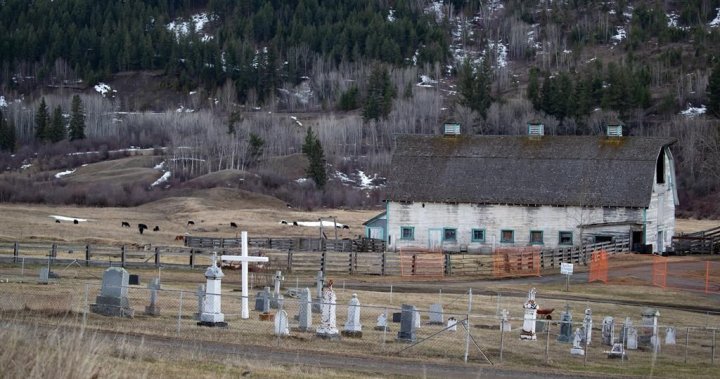“Sugarcane,” a documentary delving into the harrowing allegations of abuse and missing children at St. Joseph’s Mission Residential School in Williams Lake, British Columbia, has been nominated for an Oscar for Best Documentary Feature. The film, a collaborative effort between Secwepemc filmmaker Julian Brave NoiseCat and journalist Emily Kassie, confronts the disturbing accusations that priests at the school fathered children with students and subsequently had those infants killed in the school’s incinerator. This nomination represents a significant milestone, bringing much-needed attention to the devastating legacy of Canada’s residential school system and validating the stories of survivors and their families.
The impetus for creating “Sugarcane” arose from the 2021 discovery of over 200 potential unmarked graves at the former Kamloops Indian Residential School. This tragic revelation spurred a wave of investigations at other former residential school sites, including St. Joseph’s, where NoiseCat’s own father was born. Driven by a sense of responsibility to his family and his community, NoiseCat, alongside Kassie, embarked on a journey to uncover the truth about the atrocities committed at St. Joseph’s. The film is not merely a historical investigation; it’s a deeply personal exploration of intergenerational trauma, resilience, and the fight for justice.
For NoiseCat, the film’s nomination holds profound personal significance. His father, Ed Archie NoiseCat, who features prominently in the documentary, carries the weight of his experiences at the residential school. “Sugarcane” provided a platform for him and other survivors to share their stories, giving voice to the often-silenced narratives of pain and survival. This act of bravery, both by the survivors who shared their stories and by NoiseCat and Kassie in bringing those stories to light, underscores the film’s power and its potential to foster healing and reconciliation. The film serves as a tribute to the resilience of Indigenous communities and their unwavering pursuit of truth and justice.
The film’s impact has been widely recognized, extending beyond the Oscar nomination. Following its premiere at the 2024 Sundance Film Festival, “Sugarcane” garnered numerous awards, further solidifying its significance in documentary filmmaking and its contribution to the national conversation surrounding residential schools. Acquired by National Geographic Documentary Films, the film’s accessibility via Disney+ and its scheduled airing on National Geographic’s television channel will ensure wider reach, exposing a larger audience to this crucial chapter of Canadian history. This broadened exposure is instrumental in educating the public and fostering understanding about the enduring effects of residential schools on Indigenous communities.
The nomination of “Sugarcane” is not just about recognizing the film’s artistic merit; it’s about acknowledging the importance of these stories and the ongoing need for truth and reconciliation. The film serves as a powerful testament to the resilience of Indigenous peoples and their unwavering commitment to uncovering the truth about the atrocities committed at residential schools. It’s a call to action, urging Canadians to confront the dark legacy of these institutions and to work towards a future where such injustices are never repeated. The recognition from the Academy further amplifies the voices of survivors and their families, ensuring their stories are heard on a global stage.
Terry Teegee, Regional Chief of the BC Assembly of First Nations, aptly described the residential school policies as “colonial” and “genocidal,” emphasizing the profound and lasting impact on Indigenous peoples. The Oscar nomination for “Sugarcane” underscores the significance of the film in bringing these historical injustices to light and promoting a deeper understanding of their enduring consequences. The film’s ability to reach a wider audience through its availability on streaming platforms and television broadcasts is crucial for fostering awareness and encouraging dialogue about the need for continued reconciliation efforts. This recognition not only honors the film itself but also serves as a validation of the experiences of residential school survivors and their families, whose stories are at the heart of “Sugarcane.” It is a reminder of the ongoing journey towards healing and justice.










